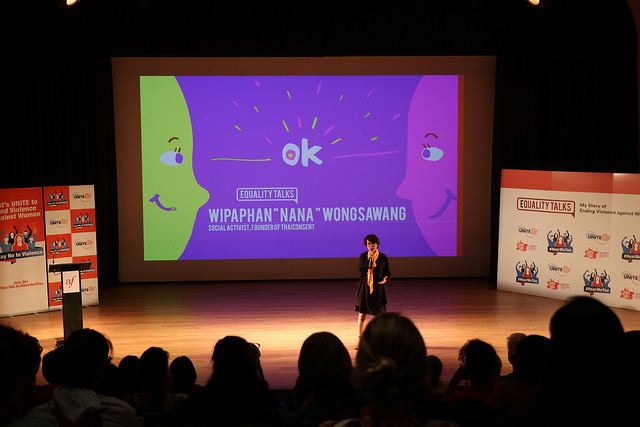
E.Quality talks and ThaiConsent
When you think of consent in Thailand, what comes to mind? If you’re anything like me, the answer is nothing.
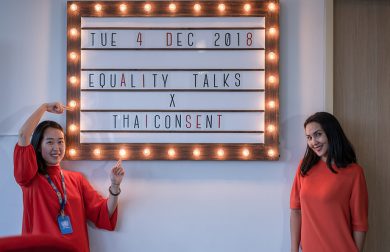
Shockingly nothing. I say “shockingly” because in a world where rape culture is at the forefront of societies with things like India’s Daughter, the Women’s March, and “grab ‘em by the pussy,” the fact that after a year of living in Bangkok I knew nothing about sexual consent in Thailand floored me. For a country globally associated with sex tourism and the sex industry, very little of Thailand’s sexual consent is discussed in the expat community. Perhaps – that’s part of the problem.
ThaiConsent is a nonprofit organisation tackling this topic head-on. Founded in 2015 by a group of friends who had all experienced sexual abuse, ThaiConsent makes it its mission to educate Thai men and women about the myths versus realities of consent.
I first learned about ThaiConsent when I was invited to an exhibition opening at Alliance Francaise de Bangkok. The exhibit featured art by activists and survivors as well as printed displays of personal stories detailing good and bad encounters with sexual consent within the Thai community.
The Alliance Francaise de Bangkok, in collaboration with UN Women Asia-Pacific and the Embassies of Canada and the Netherlands, hosted an event to commemorate the opening of the exhibit: E.Quality Talks: My story of ending violence against women.
This public event featured activists and survivors of violence, who shared their experiences and their plans for ending violence against women. Speakers ranged from social media activists to lawyers, models, and social workers.
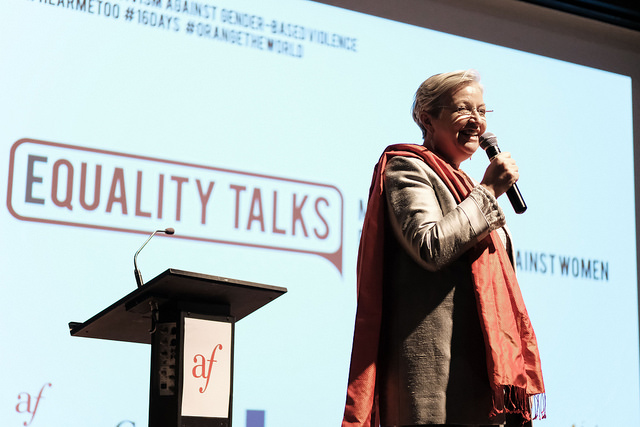
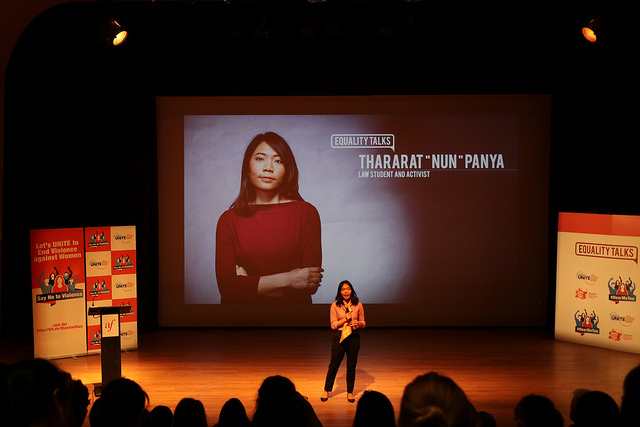
One of the first stories that stuck out to me was that of Sirinya (Cindy) Bishop, a model, social activist, founder of #DontTellMeHowToDress. Bishop started by speaking about Songkran, the popular water festival celebrated every April in Thailand. During one of Bishop’s first Songkran’s, she went out into the streets of Bangkok to take part in the water fights with friends. Throughout the celebration she was groped not once, not twice, but five separate times. “I never participated in another Songkran again,” she said. Years later, sitting at home, Bishop heard a news report, which advised women how to dress during Songkran so as to avoid assault.
Her story reminded me of my first Songkran in Bangkok. I was brand new to Thailand. Coworkers warn me about how to dress and that I may “get grabbed” during the water fights. “Don’t react how you normally would,” a coworker said to me.
“Punch them?” I said.
“Yeah,” he said. “Don’t do that. It’s Songkran. Things happen.”
His words infuriated me not because he said them, but because I knew it was true. Guys probably would use the festivities to grab women and then deny any wrongdoing. Even worse: they would probably get away with it. Most of the world is full of countries where it’s the woman’s job to not be assaulted, rather than a man’s job not to assault. My own country, the US, has this problem. I don’t know if I had expected Thailand to be any different, but I had hoped it would.
Like me, Bishop’s hackles raised upon hearing the news advise women how to dissuade unruly hands rather than warning men to not be aggressive perverts. Thus her #DontTellMeHowToDress movement was born. After Bishop came Busayapa Srisompong, a pro-bono lawyer for survivors and founder of Shero; Thararat “Nun” Panya, activist and law student from Thammasat University; and Watcharapon “Sia” Kukaewkasem, a social worker and migrant women’s rights advocate. All shared stories of abuse, survival, and how they are now using their energies to protect other women.
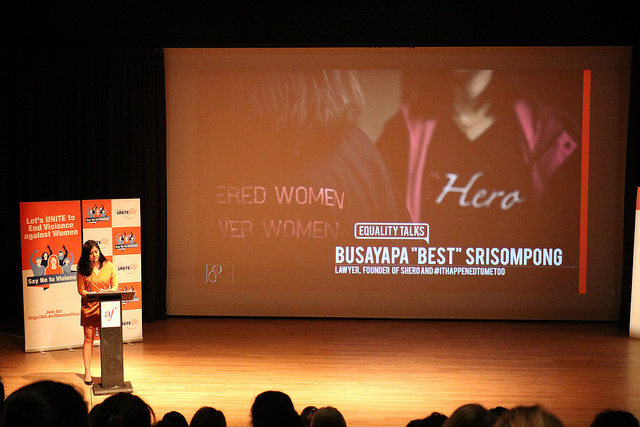
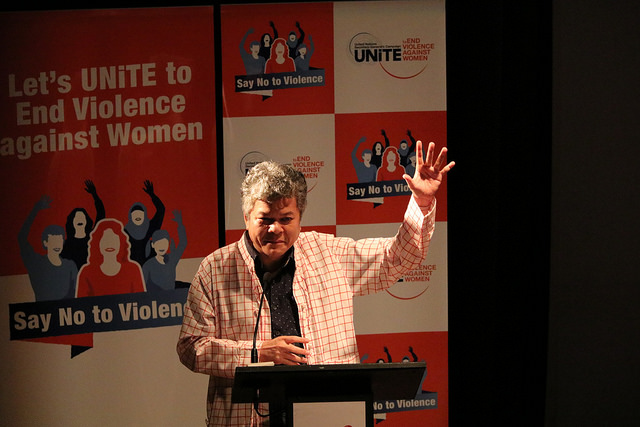
I sat glued to my seat as each woman shared her story. I couldn’t believe how much their words shocked me. Had I been in the US listening to fellow Americans, I would have still been horrified, but I would have expected the stories. Having grown up in the US it’s (unfortunately) easy for me to expect stories of abuse and assault from women.
Throw a stone at a bachelorette party and it’s unlikely you’ll hit a woman who hasn’t experienced some sort of harassment. Throw a stone into a room full of women and it’s impossible to find a single one who doesn’t at least know a woman who has been harassed and/or assaulted. Sound like a bold statement? I do not take it back: it is impossible.

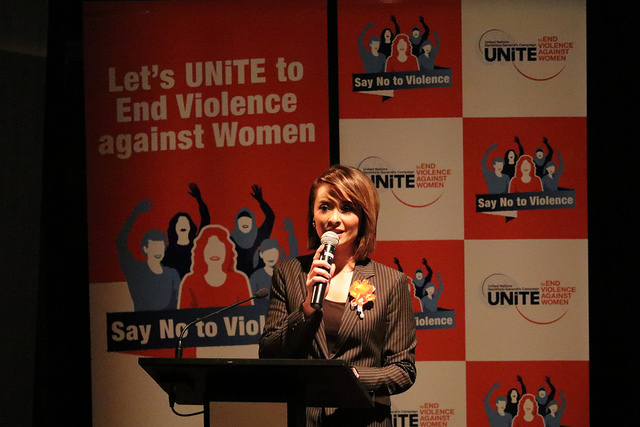
One of the last E.Quality speakers was Nana Wipaphan Wongsawang, the originator of ThaiConsent. Wongsawang recounted a time when a male friend tried to assault her at a party. The next day Wongsawang and the friend chose to ignore the experience and pretend like it had never happened. “I convinced myself to let it go,” Wongsawang said.
“He was a nice guy… despite the fact that he tried to rape me.” It took a year for her to realise the true nature of what had happened to her, and how her friend had not been “a nice guy.” As Wongsawang shared her story with friends, she found more and more had similar experiences.
Wongsawang highlighted Thai culture as the biggest culprit surrounding the misconceptions of consent.
Like countless other countries, Thailand has laws to prosecute physical, violent assault, but acquaintance rape? Spousal abuse? Those lines are blurred and less discussed. As stated earlier, Thailand may be known for sex tourism and the sex industry, but as a general topic sex is not openly discussed. School children receive minimal – if any – sex education and, like most patriarchal cultures, Thai society teaches women to feel bad for saying ‘no’ to anything, especially when saying ‘no’ to a romantic partner.
Further confounding the subject of consent is that many women do not realise they have legal rights to report these encounters to the police. Wongsawang spoke to these problems, and more, as the obstacles ThaiConsent is trying to overcome.
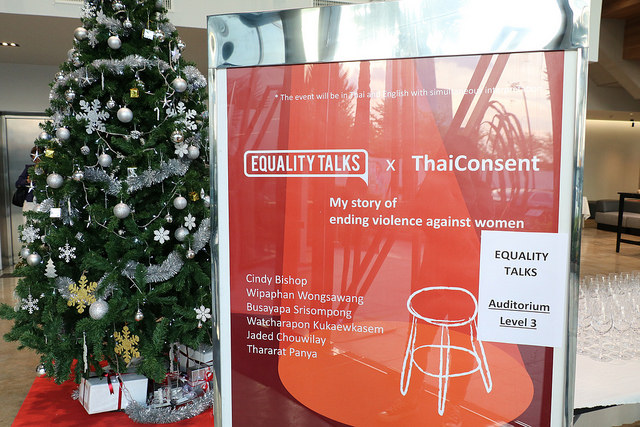
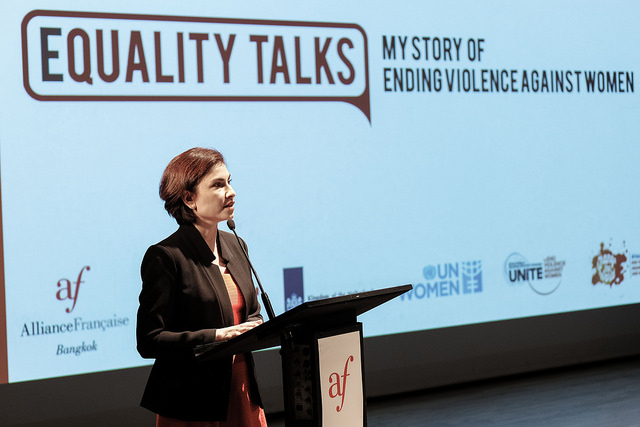
What ThaiConsent and E.Quality Talks highlight is just how tragically universal violence against women is. No matter where you go, sexual consent is not often talked about, and when it is it is about how easily consent is misconstrued or ignored. It is both uplifting and disheartening that organisations and movements like ThaiConsent and #DontTellMeHowToDress exist across the globe: uplifting because it illustrates people willing to help victims in need; disheartening because there are still so many victims in need.
I teach at an all boys Thai school. Monthly, I lecture my kids (ages 11-13) on the damaging connotations of using “like a girl” comparisons negatively (you throw like a girl). I tell them rape jokes aren’t funny and I make them write essays acknowledging that they show male teachers infinitely more respect than they do me or the only other female teacher in our department. As I sat through the two hours of E.Quality talks I wished my students had come to the event. What the activists and survivors spoke about was not only important for women to hear, but it is vital for men – young boys especially – to hear as well. Stopping violence against women does not start by telling women how to dress or where to walkor how much they should/should not drink. It starts by telling men one simple thing: respect women. Plain and simple.
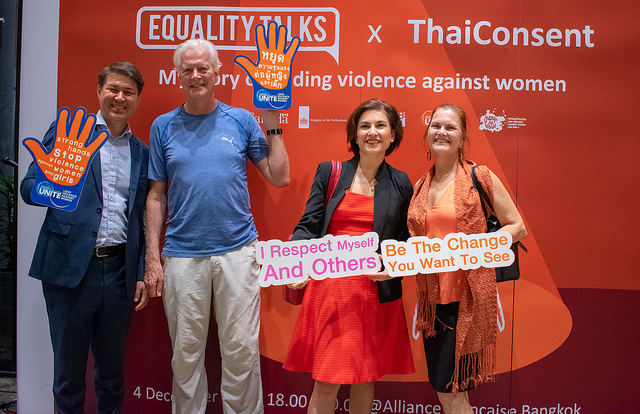
Hopefully, through the efforts of people like the activists and survivors at E.Quality Talksand the work of organisations like ThaiConsent, Thailand will soon find itself on the other side of this struggle. With any luck, news reports for this year’s Songkran willsteer away from telling women how to dress and instead they’ll tell men how to behave.


